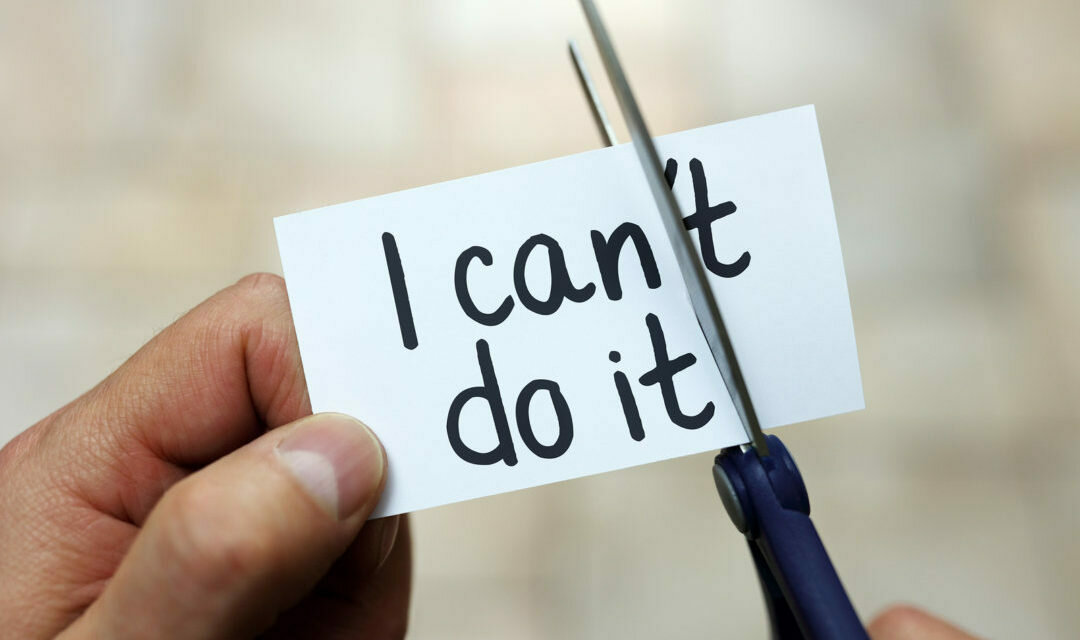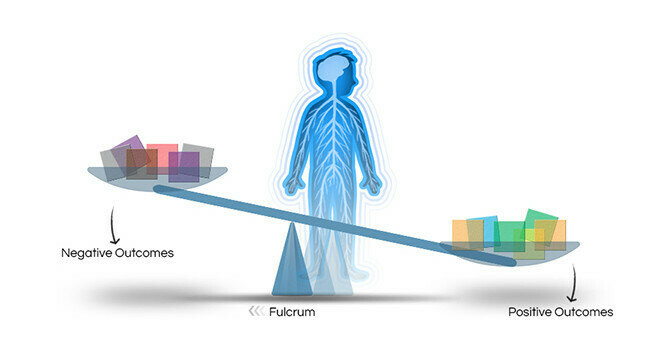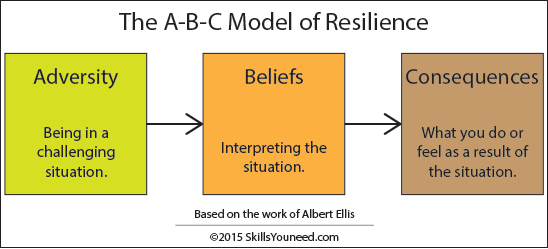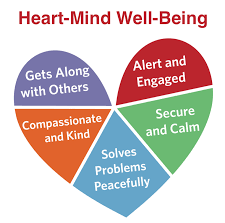|
|
|
| |
| |
|
Snapshot: March 2021
|
 |
|
|
|
|
|
|
| We acknowledge and thank the W̱SÁNEĆ people on whose traditional territory we live, learn, and teach. The W̱SÁNEĆ people have lived and worked on this land since time immemorial.
|
| |
|
|
Defining Resilience. Resilience can be defined as a good outcome in the face of adversity, and is a skill built over time, enabling us to develop capacity to manage despite big life obstacles.

|
 |
| |
|
|
 |
Why Focus on Resilience? Have you ever wondered why in the face of adversity, some individuals seem to fare better than others? Is resilience something that we are born with, or can we learn to be resilient? To answer such questions, much interest has developed around resilience, and the ability to persevere despite life's set backs. This month's snapshot focuses on understanding, fostering, and strengthening resilience, as we seek to manage the challenges in our lives.
|
| |
|
|
Resilience can be learned! Good news; resilience can be learned! Through intentionality, we can build resilience through efforts like reframing our situation, leaning on our social network, cultivating positive thinking, laughing more, and leaning into optimism. Check out the link attached or the information below to explore more ideas and ways to strengthen resilience.

|
 |
| |
|
|
|
|
|
|
|
|
Five Science Based Strategies to Build Resilience
Change the Narrative: When something bad happens, it can become easy to replay the experience over and over, engaging in a process known as rumination. Rather than replaying this loop, try to engage in activities like 20 minutes of expressive writing to make sense of an event, and to gain new insights and narratives, identifying silver linings, opportunities, or wisdom that may have arisen throughout. Changing a negative narrative to draw on growth can reframe the experience and lead to greater resilience.
Face Your Fears. In the face of ongoing challenges, it can be helpful to slowly and repeatedly expose yourself to the fear. For example, someone afraid of public speaking might try to to speak more often in meetings, or to try giving a speech or presentation first in smaller groups and setting, eventually gaining confidence as group
sizes grow. With time, increase the intensity, as you gain confidence and as fear loses its grip.
Practice self compassion. When faced with challenges or frustrated with our response, we sometimes may find ourselves feeling alone or self critical. Practicing self compassion and recognizing the common experience of adversity can lead us on a gentler road to recovery. Try taking a self compassion break where possible - be mindful, remember you are not alone, and be kind to yourself. You could also imagine what you might say to a friend in difficult moments, and then repeat the same to yourself.
Try meditating. Our most painful moments tend to come from the past or the future, as we ruminate on what went wrong, or fret about all the things that could. Practicing mindfulness both brings us into the present, while offering
techniques to deal with negative emotions.
Cultivate forgiveness. Begin by clearly acknowledging what happened, how it impacted you, and how it continues to affect your life. From here, make a commitment to forgive. While this does not necessarily mean letting another off the hook or reconciling with them, it may help let go of resentment for your own sake, and lead to new insight or opportunity for growth.

|
| |
|
|
|
|
|
|

| Visualizing Resilience. Consider a balance scale or seesaw, with coping skills and protective factors on one side, adversity on the other, and the fulcrum being positioned based on genetic predispositions. Resilience can be represented as the seesaw leaning more towards positive outcomes, rather than negative. By strengthening coping skills such as those mentioned above and protective factors such as strong adult relationships and safe environments, we can help influence the likelihood of the seesaw to sway towards positive outcomes and resilience.

|
| |
|
|
Internal and External Locus of Control. We may not always be able to control our environment, however it can be helpful to recognize what is within our control. Focusing on our internal locus of control and those areas in which we do have influence can lead to a greater sense of agency and resilience in the face of adversity.
|
 |
| |
|
|

| The ABCs of Resilience. Have you ever wondered why someone blaring on their horn in a traffic jam can cause one person to lose their temper, another to feel at fault, and cause no reaction at all for a third? While many think of an event or adversity in itself as leading to an outcome, our beliefs and thoughts about the event can also play a large role as to how we interpret an event, our agency, and our outcome, all influencing our resilience.

|
| |
|
|
|
|
Minding Your Thoughts Consider a teacher or a boss asking you to stay behind after a class or a meeting. You might immediately think you did something wrong, and begin preparing a defense. But what if that individual wanted to commend you for an idea or initiative, or to follow up on a comment? Paying attention to our thoughts is crucial to developing beliefs that influence outcomes and well-being.
|

|
| |
|
|
|
|

| Consider Covid-19 as an example. It is easy to see how this adversity could lead to rumination, worry, and being overwhelmed. Yet by shifting our focus, we may begin to notice the strength and perseverance we have exhibited, the new ways of thinking and engaging, and the grit demonstrated by so many. By reflecting on our strength rather than the solely on the challenge, we might slowly shift the narrative, celebrating and strengthening resilience in turn.
|
| |
|
|
Ask yourself questions when experiencing adversity, and gain awareness into your own resilience at work. What can I do to get back on track?
I can‘t control everything, so what is in my control?
Can I change something I‘m doing to make things better?
What can I learn from this?
Who can help?
How can I move forward?

|

|
| |
|
|
|
|
 | Building Resilience in the face of uncertainty. Just because we don't know what will happen doesn't mean the worst will! Explore the 'what if' game to challenge thinking traps and catastrophizing, and to consider new possibilities and ways of thinking.

|
| |
|
|
 | Practice Mindfulness Check the link below to consider some fun and practical ways to strengthen mindfulness at home with young children. From breath awareness to thought, emotional, and environmental awareness, these quick strategies are easy to bring into daily activities.

|
| |
|
|
 | EQUOO Equoo is an app and online game designed by Dr. Michael Unger and the Research Resilience Center for older youth. With a focus on building skills around resilience, personal growth, interpersonal relational skills, anti-anxiety and anti-depression skills, this game is both educational and entertaining.

|
| |
|
|
 | Listen to a Podcast In this podcast, Dr. Uyeda speaks to adversity and resilience, looking at both the physical and mental connections. Through education and practical ideas, Dr. Uyeda looks at why we are doing and responding as we are, and how to bring in resilience skills to promote positive health.

|
| |
|
|
|
|
|
|
|
|
Interested in Learning More? https://developingchild.harvard.edu/science/key-concepts/resilience/
https://www.health.harvard.edu/mind-and-mood/ramp-up-your-resilience
https://greatergood.berkeley.edu/article/item/five_science_backed_strategies_to_build_resilience
https://www.dartmouth.edu/eap/abcstress2.pdf
https://kidshelpline.com.au/teens/issues/building-resilience
https://heartmindonline.org/
https://www.equoogame.com/
https://keltymentalhealth.ca/podcast/bounce-back-promoting-resiliency-children-and-youth
|
| |
|
| |
|
|
|
|
|
|
|
|
| |
|